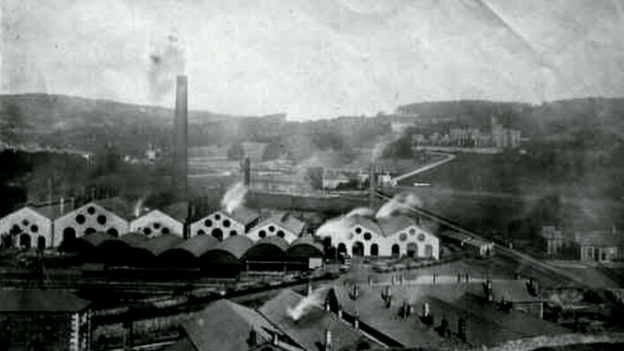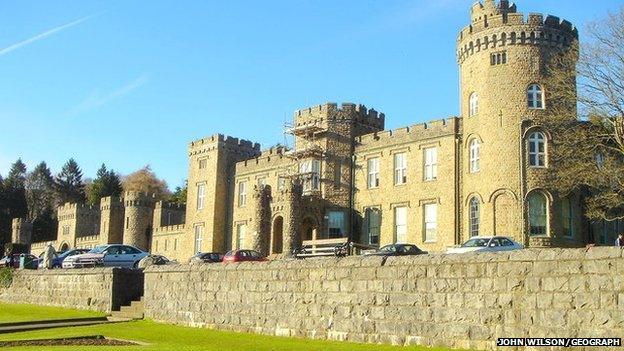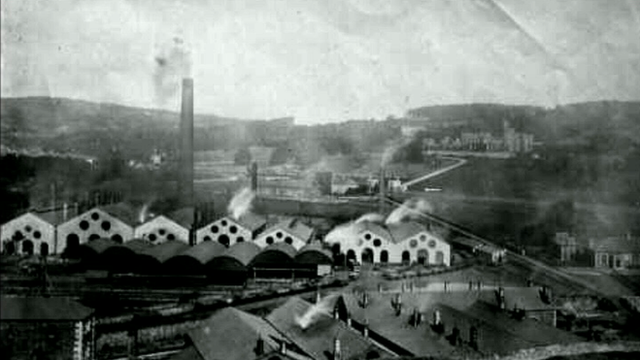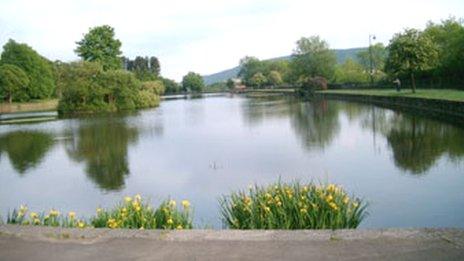Merthyr Tydfil's iron revolution celebrated 250 years on
- Published

Cyfarthfa ironworks closed permanently in 1919
Cyfarthfa ironworks - hailed as one of the greatest industrial enterprises of the late 18th and early 19th Centuries - is celebrating its 250th birthday.
Founded by Anthony Bacon, its heyday came under the ownership of the Crawshay family in the early 1800s, when it is said both the Industrial Revolution and the wars against Napoleon were built upon Cyfarthfa iron.
Though with the advent of steel, Cyfarthfa declined during the latter half of the century, and after a brief reprieve during World War One, it closed permanently in 1919.
The anniversary is being marked with an archaeology and heritage family day at the remains of the works in Merthyr.
Morgan Chambers, chairman of Merthyr Tydfil Heritage Trust, said: "Many people - even here in Merthyr Tydfil - don't know about the furnaces and the great heritage that is here right on our doorsteps at Cyfarthfa ironworks.
'Voyage of discovery'
"Those who do know about the furnaces may not have explored the site themselves or been able to find out about their history and importance.
"We hope that people take the chance to drop in to find out more, to take part in some of the activities and join us for the start of Cyfarthfa 250 - we want it to be a voyage of discovery."
The story of Cyfarthfa ironworks began in 1765, when Cumbrian slave and tobacco trader Bacon secured the rights to a tract of 4,000 acres on the west bank of the River Taff which was rich in the coal which Cyfarthfa would rely on for its furnaces.
Bacon and partner William Brownrigg hired Charles Wood, who built blast furnaces at the site for his patented "potting and stamping" method of turning pig iron into usable iron bars.
But Bacon's children showed little interest in their father's business and, after his death, Richard Crawshay gained control.

Cyfarthfa Castle - the Crawshay's imposing stately home
Crawshay adapted Cyfarthfa to use the "puddling" process, which greatly improved the quality of the iron.
Admiral Nelson is said to have favoured Cyfarthfa iron for his cannon - paying a personal visit to the works in 1802 - and Crawshay soon adopted a pile of cannonballs as the company's emblem.
But like Bacon, Crawshay's descendants showed little aptitude for the business; instead preferring to throw themselves into the construction of Cyfarthfa Castle, the family's imposing stately home overlooking the works.
By the late 19th Century, Cyfarthfa was in terminal decline, being slow to switch from iron to steel and floundering in the face of cheap foreign imports.
Last year significant archaeological remains of the furnaces, along with connecting tramways were discovered during construction work on a new DIY store.
- Published7 September 2013

- Published18 December 2011

- Published6 September 2013

- Published21 August 2013
